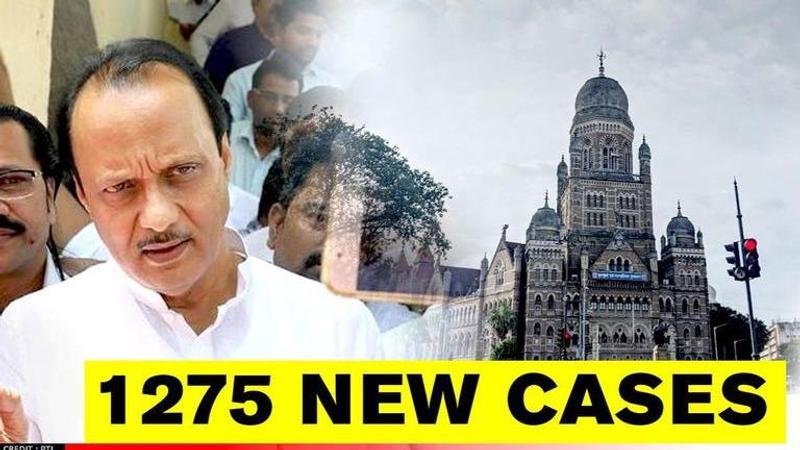Published 23:18 IST, August 20th 2020
Mumbai sees 1275 new COVID cases; ICMR to begin BCG vaccine trials on elderly population
As Maharashtra's state transport reopens, the financial capital reported 1275 new Coronavirus (COVID-19) cases and 46 deaths. The city also saw 976 recoveries

As Maharashtra's state transport reopens, the financial capital reported 1275 new Coronavirus (COVID-19) cases and 46 deaths. The city also saw 976 recoveries taking the cured tally to 1,07,033. Mumbai's tally now stands 1,32,817 cases of which 18,170 are active and 7311 deaths.
Mumbai: 1275 new COVID cases
Mumbai is seeing a steady rise in recovery rate - standing at 80.58% now while its growth rise slowed to 0.80%. BMC reported that 6,80,035 samples have been tested till date with a 19.34% positivity rate. As per BMC's war room report, 122 of 912 ventilator beds were vacant, while 231 of 1431 ICU beds were vacant.
BMC starts ICMR-BCG vaccine trial
As Coronavirus cases in India rise, BMC stated that ICMR's study to ascertain whether BCG vaccine can prevent COVID in the elderly population (60-75 years). The trial will look at the degree of severity of the disease and immunity developed due to BCG vaccines offered after informed consent. While trials are undertaking in Chennai, Mumbai, Ahmedabad, Bhopal, Jodhpur and New Delhi, BMC will assist ICMR's trials at Mumbai's KEM hospital and Seth G.S Hospital. The trials will primarily be undertaken in F & G south wards with an estimated 250 participants.
Moreover, the BMC has also revised its home-isolation rules - advising admitting COVID-19 positive patients above 50 years to COVID care centres, as per reports. Moreover, home quarantine will now be allowed only for those below 40 years without co-morbidities. As per state health data 70 percent of Covid deaths in Maharashtra people who are above the age of 40 years.
Mumbai's COVID crisis
With Maharashtra extending its lockdown, the BMC has increased its containment zones to 581, while over 5504 buildings and chawls have been sealed and are being self-managed by the society. While slums were initially where most cases were found, BMC claims that most cases were now found in housing societies. The recent BMC report shows Borivali as the most affected place with the doubling rate at 57 days, while Deonar is the least affected ward with a doubling rate at 130 days. Overall, Mumbai's doubling rate at 90 days is higher than the national average of 22 days.
Updated 23:18 IST, August 20th 2020




